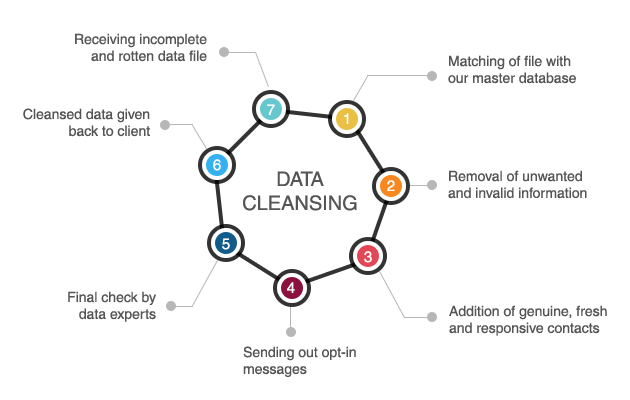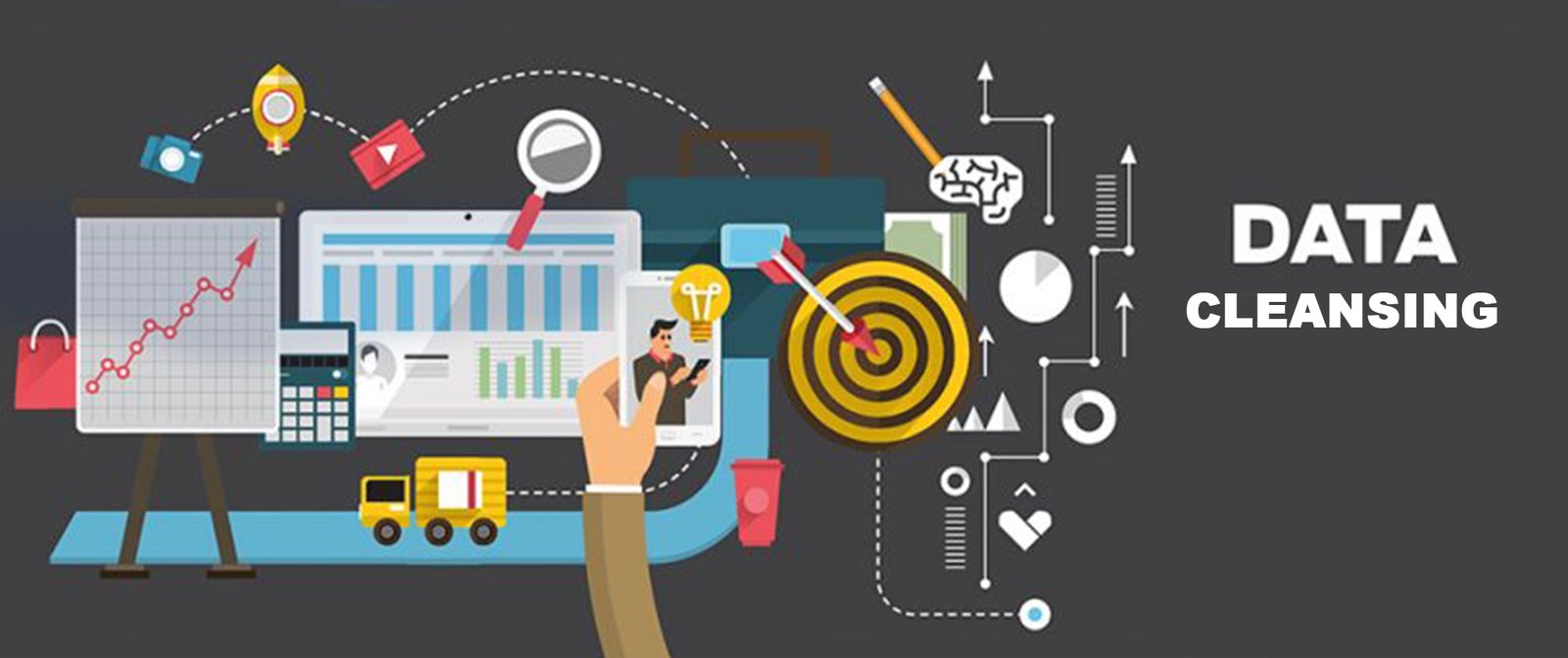How Data Cleansing Can Improve Business Efficiency?
Summary
The post summarized one of the most crucial things that are how data cleansing can actually help businesses reach the heights of perfection. What is the importance of data cleansing in business? Clean data are the key to success. It’s your desk. It’s your desk. If it’s messy, you’ll be less productive until you clean it up. It will eventually overwhelm you and make it impossible to work. The information is also affected. Data will become so cluttered that it is impossible to trust the information being pulled. So, make sure you perform the act of cleansing the information in order to enhance productivity in the best possible ways.
It is dangerous to have too much of anything, and the same applies to data. Organizations are discovering ways to harness mountains of data in meaningful ways, but bad or low-quality data can cause equal and detrimental effects. It is crucial to keep your data organized and functioning properly for business. Your ability to grow your business profitably can be affected by duplicate, incorrect, incomplete, or inconsistent data.
How Your Company Can Clean Up Dirty Data?
Data are the new oil. However, we live in an age of data explosion and data disaggregation. Information accuracy is vital for any business. Uber and Ola, for example, must optimize their fleet programs by tracing routes for drivers. It is important that their routing algorithm includes customer details. If drivers don’t have correct customer information, they won’t be capable of reaching the destination within the timeframes. This will lead to late pickups and deliveries, as well as unnecessary costs and time wastage. The question, “Where are your customers?” is always answered by quality data.
Businesses of any size can now have garbage data in and garbage insights out. Your business’s ability to clean up its data will have a greater impact on the quality and results you achieve. Data cleansing is also known as data cleaning best practices. It ensures that customer data are “fit for business” in order to streamline business operations, analyze market trends, and keep up with changing markets.
What Data Cleansing Can Do for Your Business?
Trustworthy information is essential for every business: Your business’s lifeblood is its quality or clean data. This helps you deliver a great customer experience, increase your competitive edge and grow. Let’s look at how it works:
-
Better experiences are possible with good data:
If you want to send birthday wishes to your customers, they must be sent on the correct day, at the right moment, and to the right person – with the right message. Your teams can align their entire cycle with good data. Your customers will feel valued and happy when your efforts align with their buyer’s journey.
-
Great data lead to greater efficiency:
This is why you need to have more data cleansing responsibilities. Clean data improve workflow efficiency, makes processes more effective, and increases productivity. This means that employees spend less time fixing data errors and can focus more on building revenue.
-
Quality information leads to an increased bottom line:
Clean data will result in higher profits. Employees will save time and not waste their time sending multiple contacts to customers when they have accurate data. Duplicate contacts can be avoided, which will ultimately save you money.
Trust is built on quality data: Quality data can help you build trust with your customers, employees, and consumers. Nobody wants to hear wrong spelling, get misdirected emails, or receive communication from the wrong address. Data can also destroy the internal trust of employees by destroying one record at a given time.
What are the best data cleansing practices to gain valuable business insight?
The first step is often the most difficult and important. You must adhere to data cleansing best practices in order to meet your expectations about how quality data can help you.
Here are some trusted ways to start cleaning up your data.
- Keep track of errors and monitor them: Record the number of errors that occur in your database. These errors should not impede the operation of other departments if you integrate other solutions with customer databases.
- Data accuracy is important: After the database has been cleaned, it is essential to validate, standardize and maintain accuracy. Third-party experts can help you with data cleansing. These tools use RPA, which is robotic process automation that is backed by Artificial Intelligence-AI and Machine Learning-ML algorithms to improve the accuracy of your business data.
- Clear duplicate data: Duplicate data can prevent you from gaining essential insights. Additionally, duplicate data can lead to unsettling customer experiences. Regularly verify and scrub your business data to eliminate duplicates. This will help you save money on data maintenance.
- Analyze the results: After your data has been validated and standardized, trusted third-party data cleansing professionals will add new information from reliable sources to it. Clean and well-compiled data will give you a better picture of your business and allow for more analytics and business intelligence.
- Clear communication is key: It’s equally important to keep your data clean. Clear communication with your team will allow you to standardize and establish your data cleaning process. It is ultimately about strengthening customer segmentation. Your team must have the same approach.
Conclusion
B2B Data cleansing has become a strategic driver. It involves many teams. A robust data cleansing program is just one part of the overall effort. Clear data mean clear direction. All your good and bad decisions are dependent on the data backing them. If errors are not rectified, they will cost you money and taint your reputation. Data cleansing is a reliable method to ensure data integrity and to make decisions with precision, accuracy, and farsightedness.


















